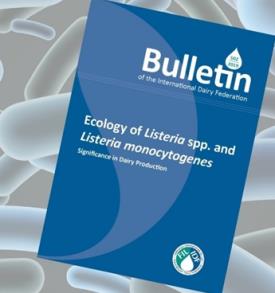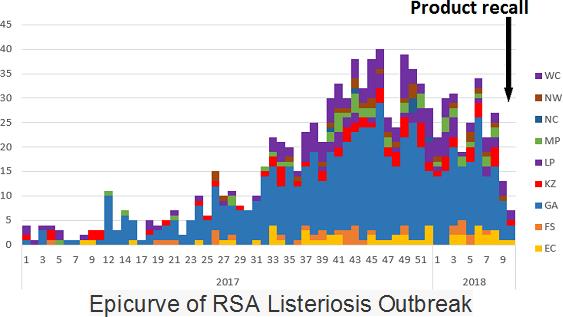 Scientist at the University of Giessen in Germany recently sequenced the genes of a newly isolated hypervirulent Listeria monocytogenes isolated from sheep. It is known that ovine listeriosis results in fetal death with a high proportion of abortions and stillborn lambs. Since the infection is zoonotic, shepherds are infected by contact with placentas and fetuses while assisting with lambing down of an infected flock.
Scientist at the University of Giessen in Germany recently sequenced the genes of a newly isolated hypervirulent Listeria monocytogenes isolated from sheep. It is known that ovine listeriosis results in fetal death with a high proportion of abortions and stillborn lambs. Since the infection is zoonotic, shepherds are infected by contact with placentas and fetuses while assisting with lambing down of an infected flock.
The hypervirulent Listeria strain expresses virulence factors associated with other strains of Listeria monocytogenes but are expressed concurrently. The potential of this Listeria strain to contaminate food resulting in widespread infection is self-evident. Previous extensive Listeria outbreaks included the Maple Leaf episode in 2008 attributed to cold cuts and the contamination of Blue Bell ice cream in 2015. Contaminated Chicken polony (a sausage-product) in South Africa resulted in over 1,000 laboratory-confirmed cases with 200 fatalities between January 2017 and March 2018 attributed to an ST6 strain of Listeria monocytogenes. In December 2019 hard cooked peeled eggs were recalled from a plant following trace-back from a total of seven cases spread among 2017 and 2019.
The application of whole genome sequencing permits epidemiologists to positively correlate isolates from patients with environmental sample from equipment and the environment of plants processing food.
